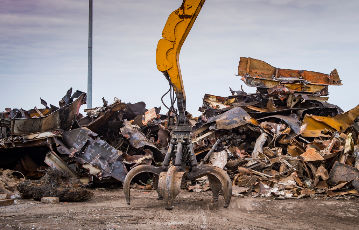The recycled materials industry provides a renewable source of high-quality materials for everyday items and essential infrastructure, making Canada’s supply chain more sustainable and more secure.
In addition to lobbying, advocacy, and networking CARI also offers its members other amazing benefits like cost saving programs, group health benefits and much more.
Join us for CARI’s 83rd Annual Convention at the Delta Hotels by Marriott Grand Okanagan Resort on June 11-13, 2024. Register before May 2024.
A selection of news sources and other important information covering the latest events, regulatory changes, new recycling technologies, market trends and more.
The Canadian Association of Recycling Industries was founded in 1941 at the request of the Canadian government, which sought high-quality scrap metal to support the war effort; today we are an industry association made up of over 200 companies and branches in all areas of the recycling sector. The Association has evolved into a powerful industry association representing companies from small family scrap yards to massive capital intensive processing plants.

The Canadian Association of Recycling Industries was founded in 1941 at the request of the Canadian government, which sought high-quality scrap metal to support the war effort; today we are an industry association made up of over 200 companies and branches in all areas of the recycling sector. The Association has evolved into a powerful industry association representing companies from small family scrap yards to massive capital intensive processing plants.

Eric Termuende
Eric Termuende is a best-selling author, internationally recognized thought leader, and keynote speaker on all things future of work, leadership, workplace culture and talent management.
Recycling companies are part of a sophisticated worldwide commodity sector driven by basic supply and demand. The Bureau of International Recycling (BIR) estimates 1.6 million people work directly in the global recycling industry, handling more than 600 million tonnes of recyclables each year and generating billions of dollars of economic activity worldwide. Currently about 45% of the world’s annual production of steel, over 40% of the world’s copper production, and about 33% of the world’s aluminum is produced from recycled material. Canadian recyclers process millions of tonnes of scrap material each year.

CARI advocates at all levels of government to protect recyclers. Learn about our Lobbying, Government Submissions and Concept Papers.

Our industry suffers from more material theft than any other. CARI works with law enforcement and industry stakeholders to reduce material theft.

Stay up to date with the latest news, events and other important information in the recycling world from the most reputable industry sources.
We’re here to help! If you have problems getting through you can email us and we’ll get back to you soon.